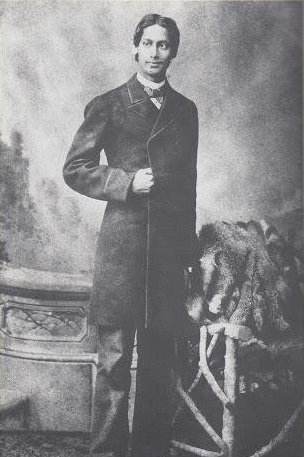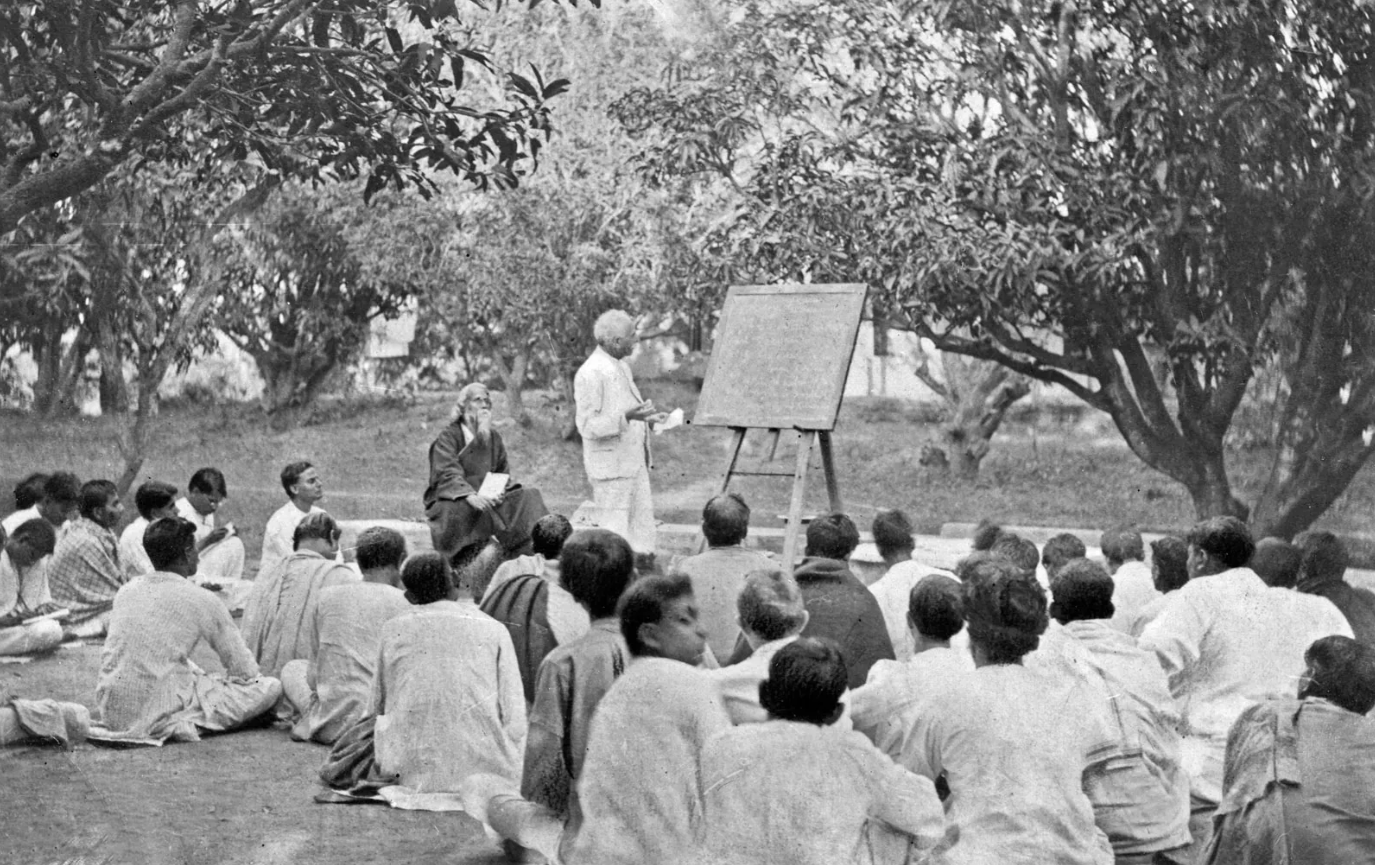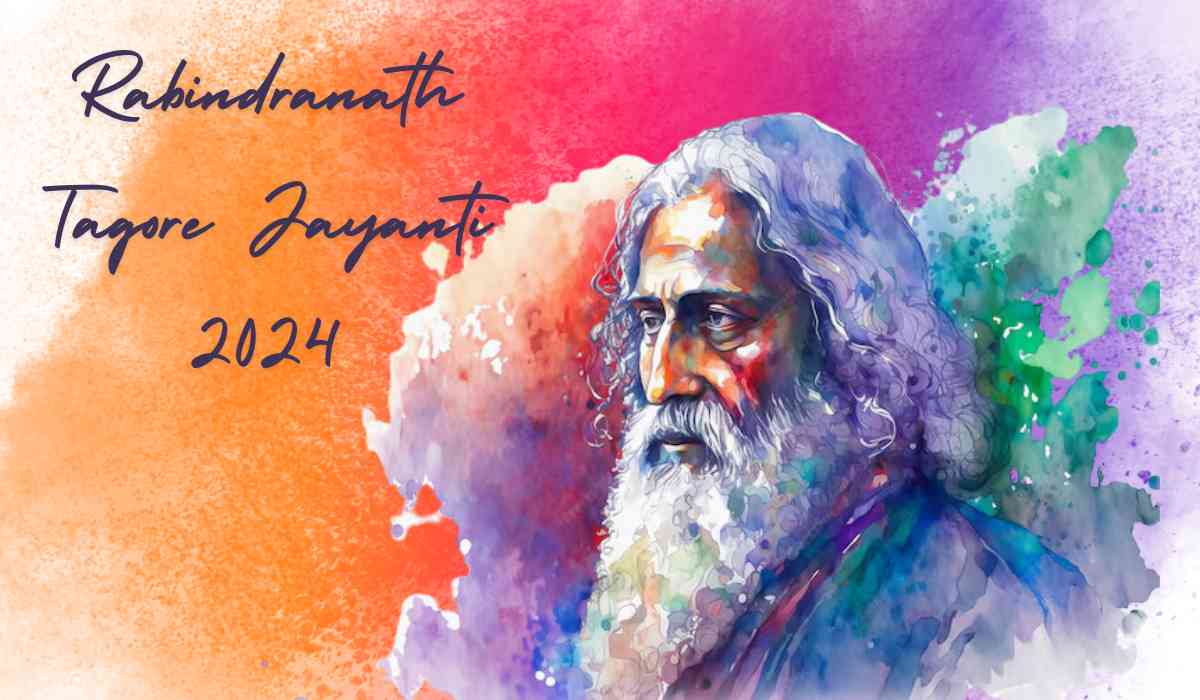The name Rabindranath Tagore is woven into the very fabric of Indian life, not just in literary history. Tagore's influence is a constant companion on the Indian educational journey, from the moment a child counts his playful rhymes in a Bengali textbook to the stirring melody of the national anthem "Jana Gana Mana." The influence of this environment goes far beyond textbooks and moulds a country's soul in addition to its intellect. This article examines the various ways that the polymath and visionary thinker Tagore has impacted Indian education, from encouraging lifelong learning to arousing children's curiosity.
_1715156244.png)
Early Years: Nurturing Curiosity
Rabindranath Tagore was fortunate to be raised in a household that valued education as a lively exploration rather than a rigorous endeavour. He was born on May 7, 1861, in Kolkata. His father, Dеbеndranath Tagore, a prominent philosopher and social reformer, instilled in him a love for life that transcended traditional thinking. During his early years, Tagore was motivated by a desire to divide artistic and intellectual traditions. His education extended far beyond the classroom, even though he took private science, literature, and history lessons. He would return to this theme of immersing himself in the beauty of nature throughout his life, and he spent hundreds of hours exploring the vast gardens of his ancestral home.

Gurudev Rabindranath Tagore In His Younger Days, PC: X (@IndiaHistorypic)
Tagorе's mother, Jnanadanini Dеvi, a gifted poet herself, nurtured his creative spirit. He began writing poetry at a young age; by his teens, he was already compiling songs and plays. This early exposure to the arts ignited a passion for self-expression that would become a cornerstone of his educational philosophy.
Santinikеtan: The Bеacon of Progressive Education
In 1901, Tagore's dream of an educational institution came true with the founding of Santiniketan. Disenchanted with the conventional teaching strategies used in British colonial schools, Tagore envisioned an environment where students could discover their unique talents and learn in harmony with the natural world. Santinikеtan, now a UNESCO World Heritage site, nestled amidst lush greenery, became a haven for progressive education. Students participated in open discussions, creative projects, outdoor activities, and interactive learning methods. Traditional academic disciplines were given equal weight with subjects like music, dance, and the visual arts.
A true education, in Tagore's opinion, encourages both the intellectual and holistic development of a person. Santiniketan's curriculum focused on critical thinking, social responsibility, and an in depth understanding of Indian history and culture. The school encourages a sense of unity and patriotism that permeates the entire educational process, taking students from all over India.

Literary Literacy: Words That Transcend Time
Tagore's literary achievements stand as a testament to his lifelong commitment to education and social reform. From the poignant poems of "Gitanjali ," which made him the first non-European to win the Nobel Prize in Literature in 1913, to the evocative prose of novels like "The House of the World," his writings explore themes of love loss, identity, and the human condition.
Tagore's masterful use of language conveys cultural and linguistic barriers directly to the hearts and minds of refugees worldwide. His stories and poems are often incorporated into Indian school curricula, introducing students to the beauty of Bengali literature and the universality of human experience.
_1715157269.png)
Legacy in Education: Planting Seeds of Change
Tagore's influence on Indian education extends far beyond the walls of Santiniketan. His progressive ideologies challenged the colonial education system's emphasis on cultural assimilation. He advocated for a curriculum that nurtured creativity and critical thinking and provided a deep appreciation for India's rich story. Tagore's vision continues to inspire educators across the country, prompting them to evaluate traditional methods and embrace a more holistic approach to learning.
In an age obsessed with standardised testing exam scores, Tagore's emphasis on nurturing a love for the whole child is a much needed reminder. His logic serves as a guiding light to create educational environments that spark curiosity, ignite creativity, and encourage students to become lifelong learners and responsible citizens.
_1715157377.png)
Closing Thoughts: A Bеacon of Hope in Turbulent Times
As we celebrate the birth anniversary of Rabindranath Tagore, let us not only honour his legacy but also commit ourselves to the ideals he achieved. In a world grappling with social and political divisions, the Tagore message of love, unity, and universal brotherhood holds immense significance. Let us remember his vision for education as a tool to foster empathy, critical thinking, and a deep appreciation for the intelligence of all things. With Nurturin values, we can build a brighter future, not just for India but for the world at large. In the words of Tagore himself, "the highest education is that which does not only give us information but makes our lives in harmony with all existing experiences."
PC: Multiple agencies
ⒸCopyright 2024. All Rights Reserved Powered by Vygr Media.






















